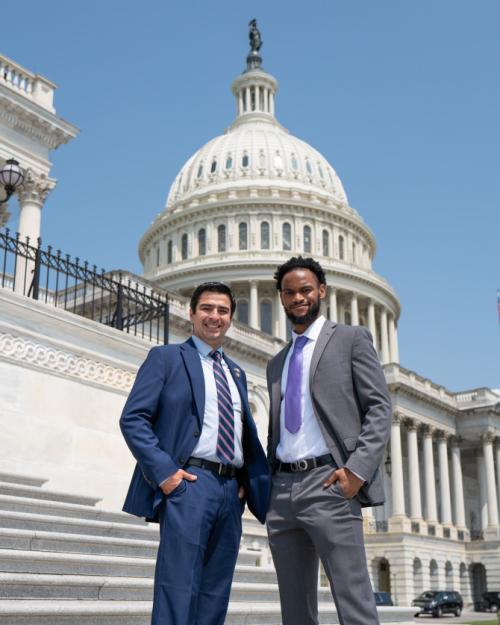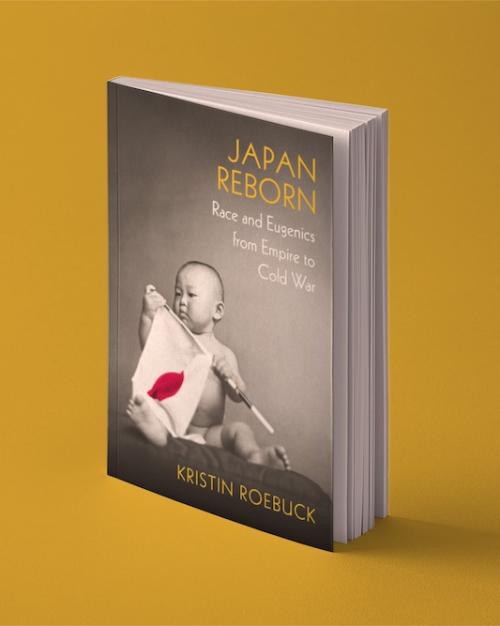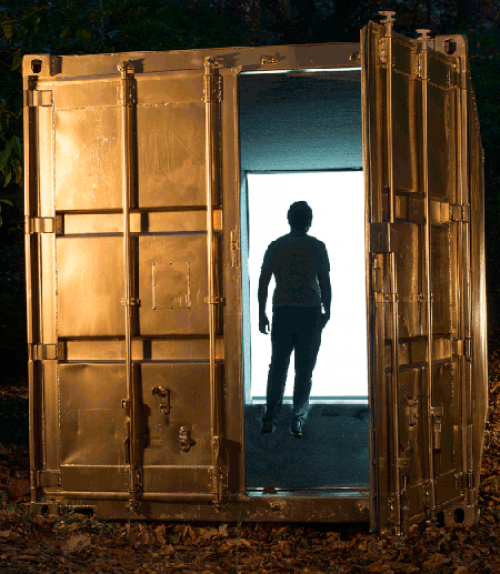In fall 2018, Cornellians will be able to engage deeply with people all over the world – from international entrepreneurs to Syrian refugees – through an on-campus portal equipped with immersive audiovisual technology.
The portal, which will be located just outside Olin Library for three months, is part of a global public art initiative bringing people face-to-face with others from different continents and life circumstances. Portals have been installed in more than 20 places around the world, including Afghanistan, Honduras, Germany, Iraq, Myanmar, Rwanda, Newark, New Jersey, and Los Angeles.
“We’re excited to be collaborating on this project,” said Laura Spitz, vice provost for international affairs. “One of our Global Cornell priorities this year is ‘global-at-home’ – the portal will help bring the world to Cornell and Cornell to the world, within a project focused on making connections from right here on campus.”
Inside the high-tech portal, which is made from a shipping container, users will come face-to-face with someone in a different portal elsewhere. Users can have spontaneous conversations with people through the portal, and classes can reserve and use the portals for projects or assignments for global learning.
The Cornell portal is being coordinated by Cornell University Library and sponsored by the Office of the Vice Provost for International Affairs.
“This installation will expose Cornellians and community members to a level of diversity that is otherwise difficult to experience,” said Carl A. Kroch University Librarian Gerald Beasley. “The library is dedicated to diversity of thought and connecting people, places and ideas. This project will advance all of those goals.”
Learning opportunities at portals worldwide have spanned disciplines from history to music. For example, students have engaged counterparts in Iraq and Afghanistan to talk about conflict and prospects for peace. Students at the University of Maryland created an interpretive dance while rappers in Herat, Afghanistan, laid down a new track. A portal in a converted gas station in a refugee camp in Erbil, Iraq, allowed a young entrepreneur to speak with Barack Obama.
Here at Cornell, several university units will be working together to create learning opportunities for the broadest possible set of disciplines. The portal will be open to the general public and individuals, as well as classes and groups working on specific projects
For more information, check the project FAQs or email Jessica Withers of Cornell University Library.
Melanie Lefkowitz is staff writer, editor and social media coordinator for Cornell University Library.
This story also appeared in the Cornell Chronicle.




